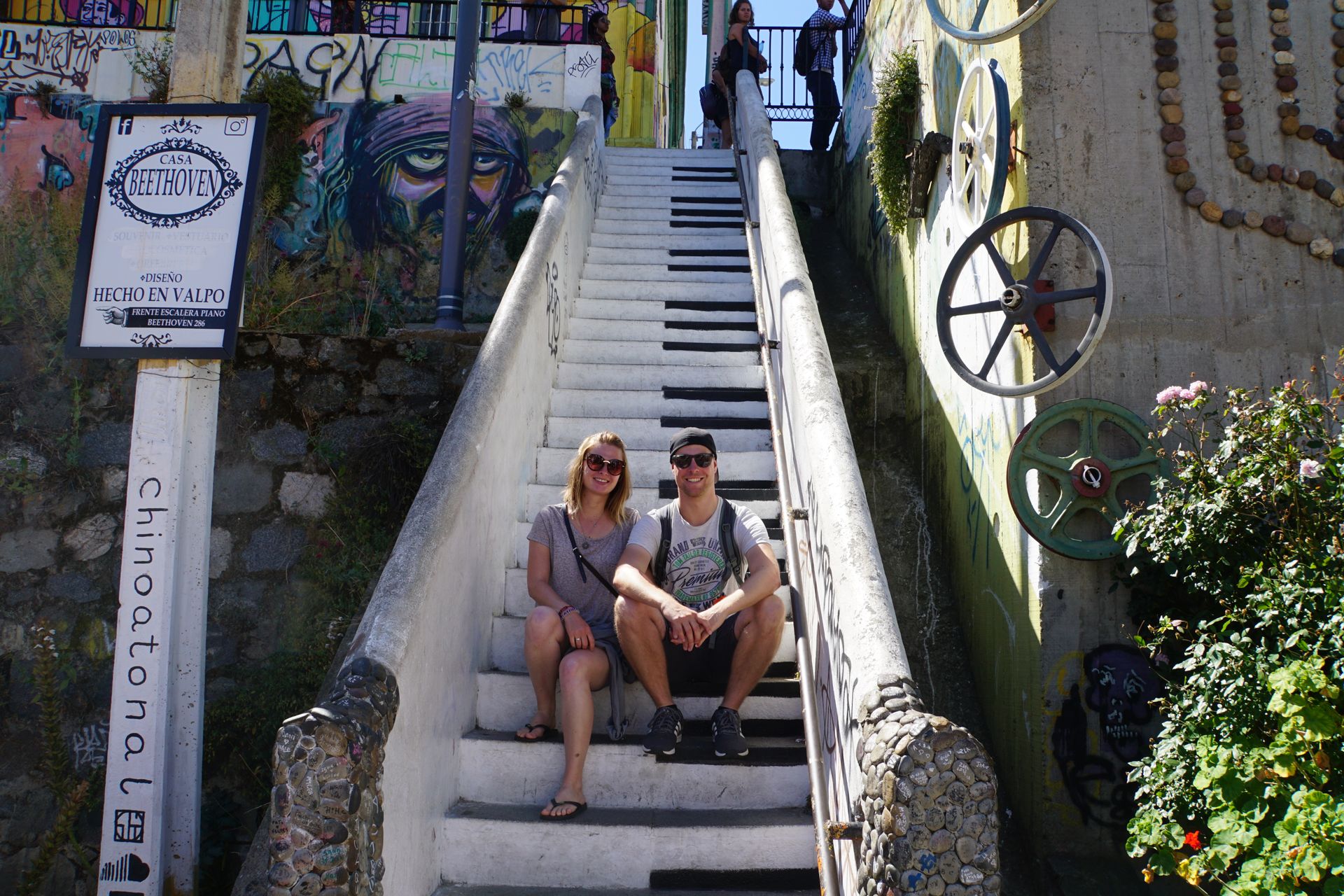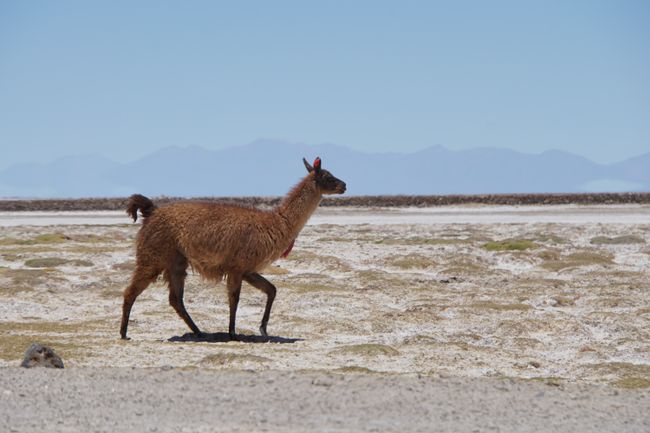Northern Vietnam - Two Days in Sa Pa
Publicado: 05.04.2019
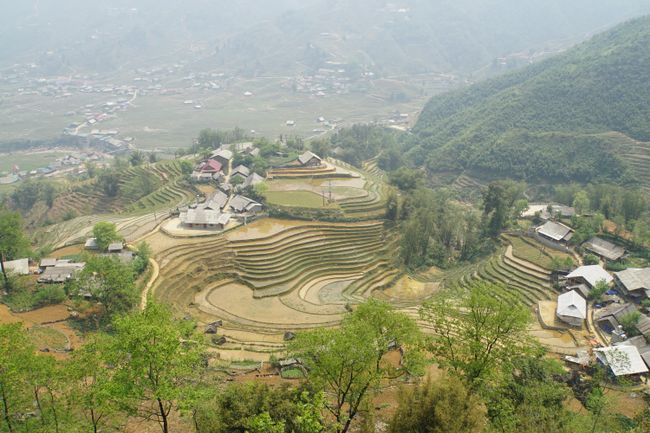
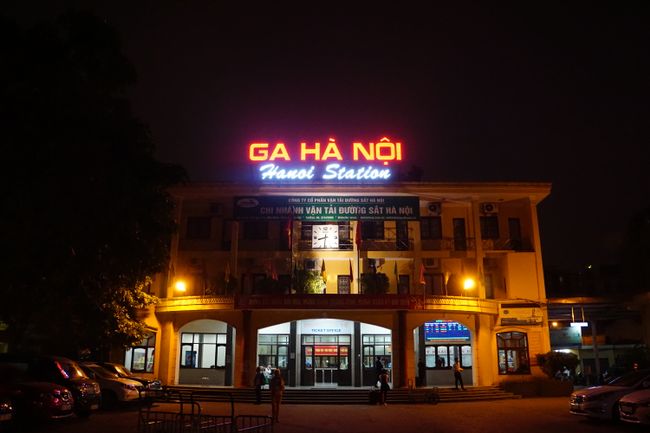
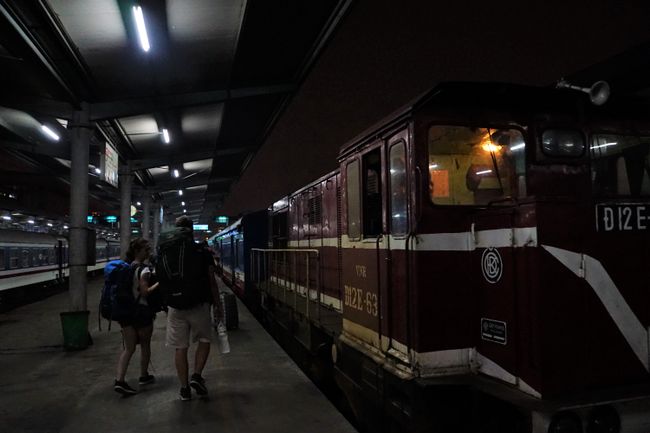
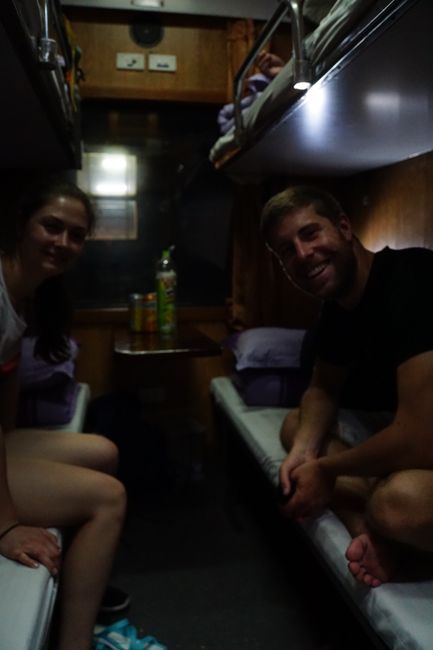
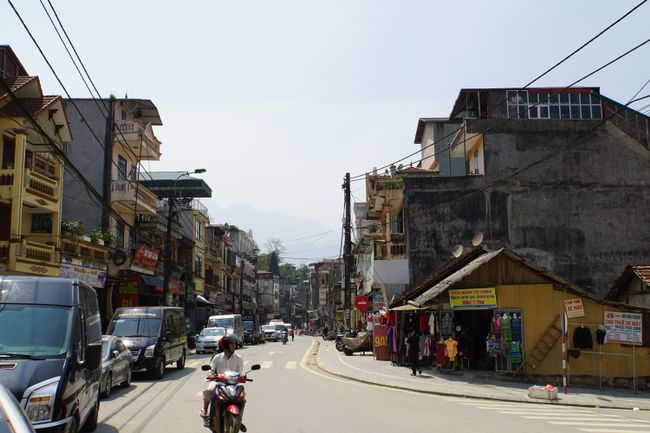
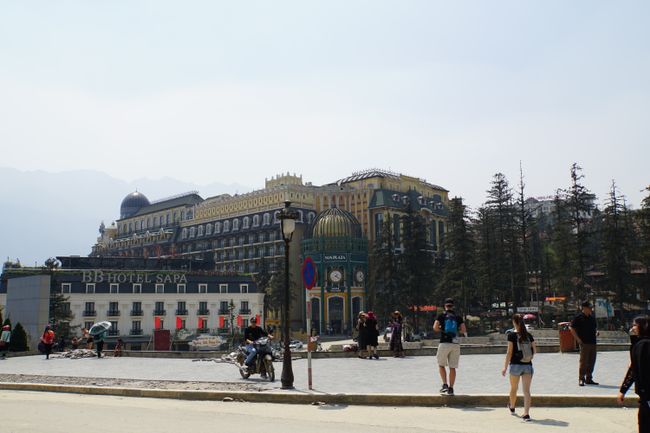
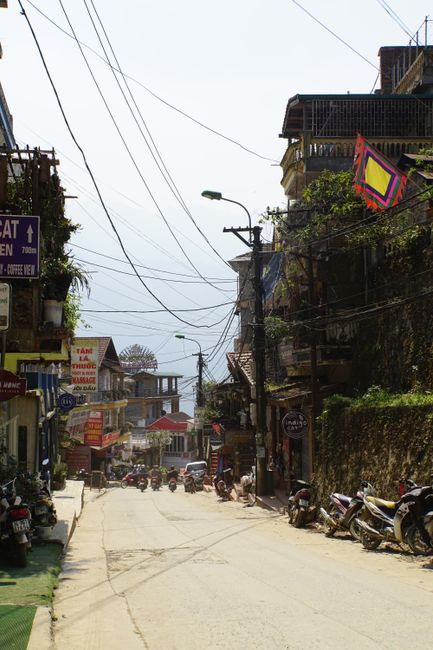
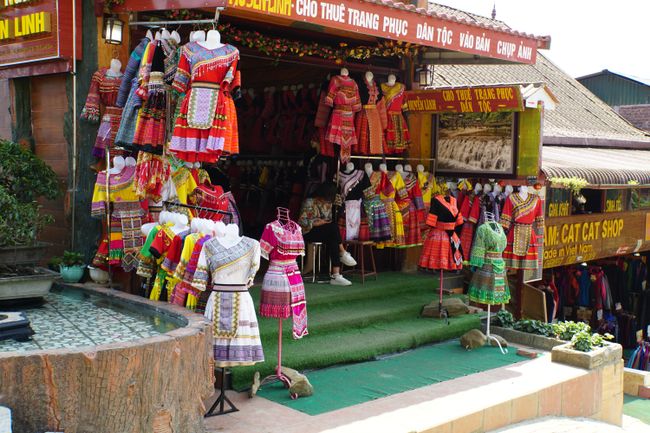
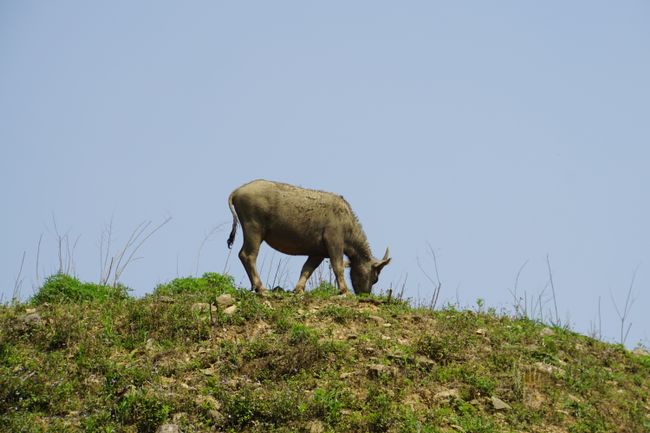
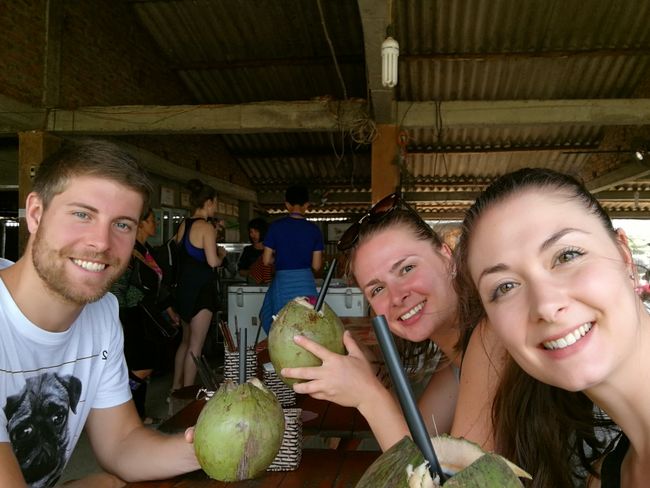
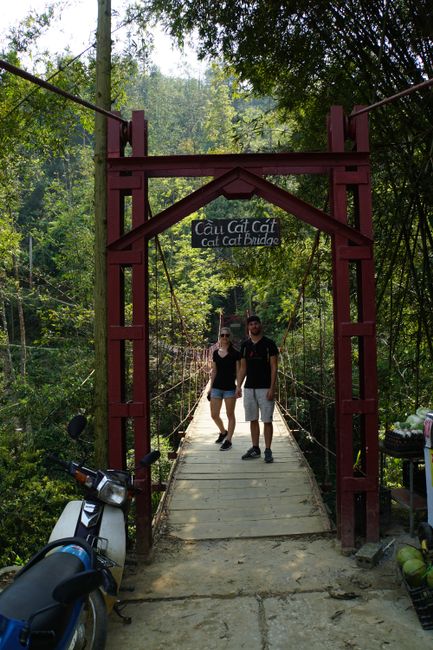
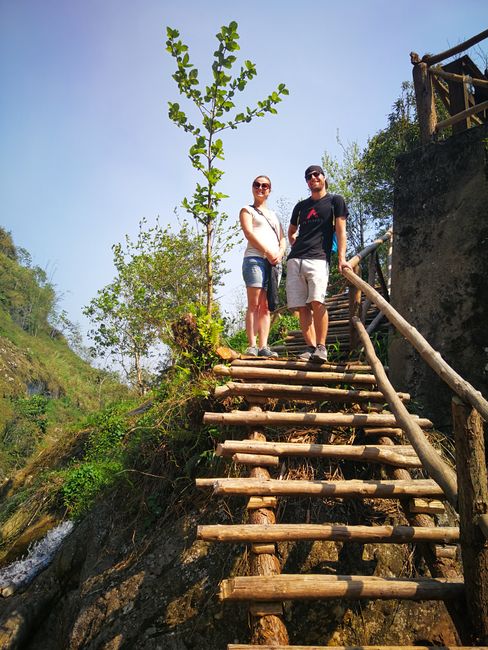
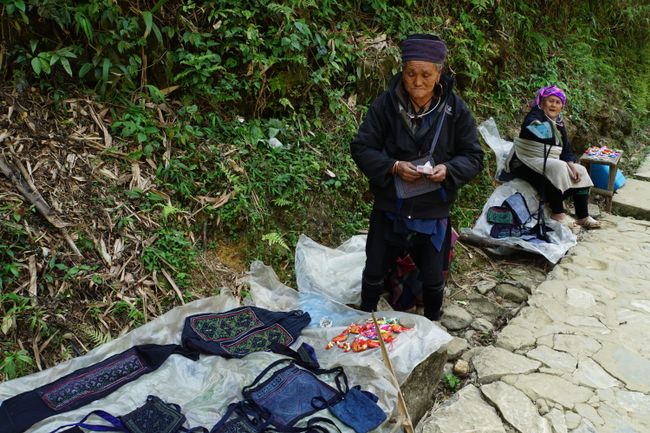
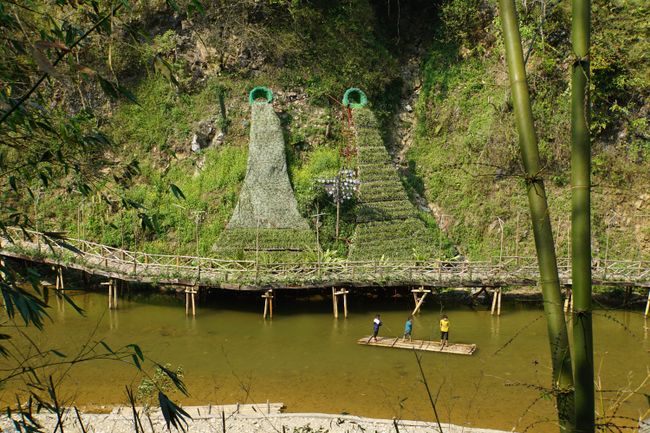
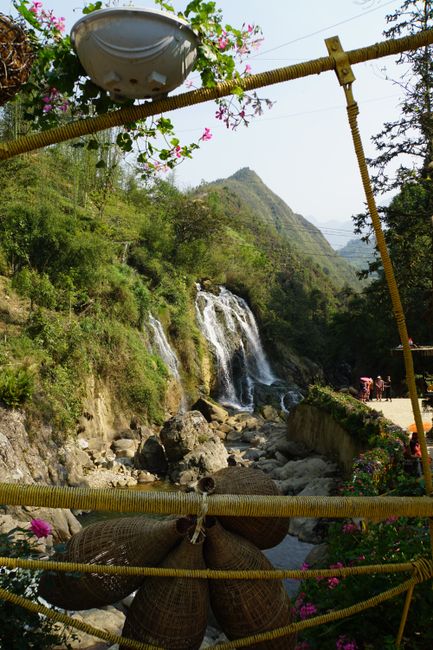
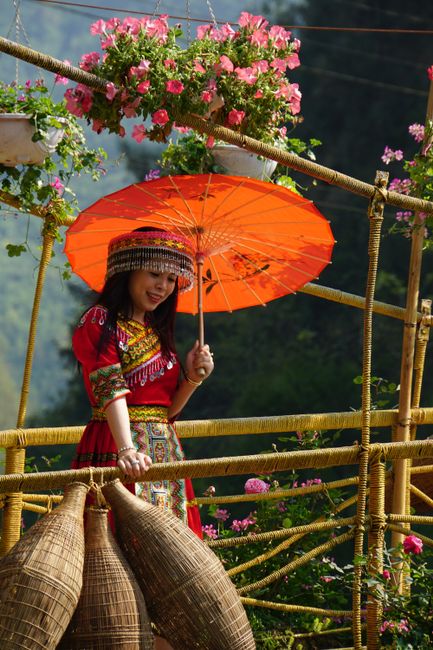
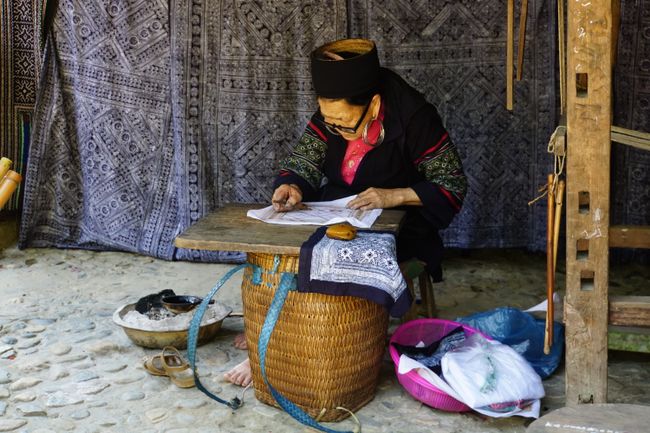
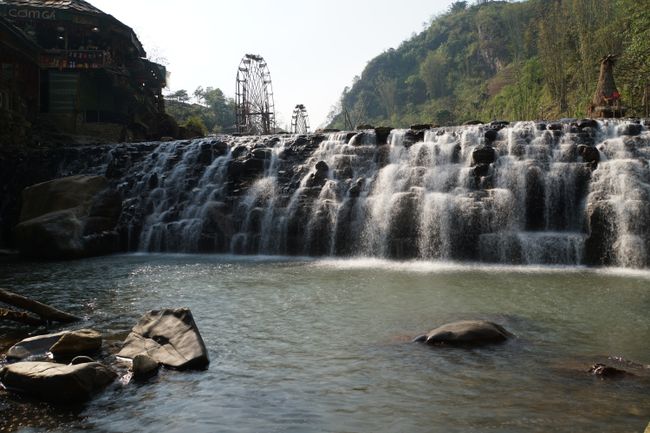
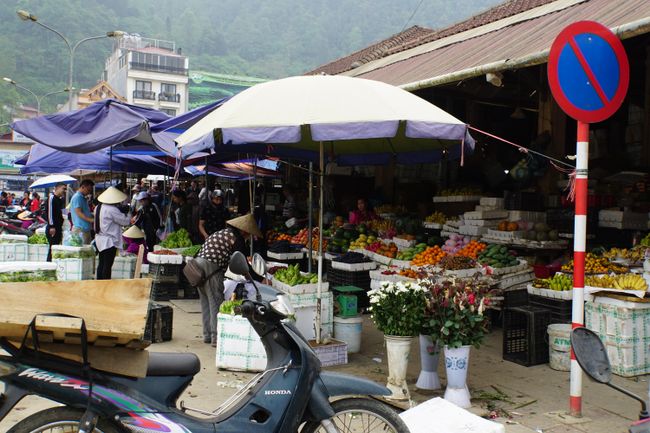
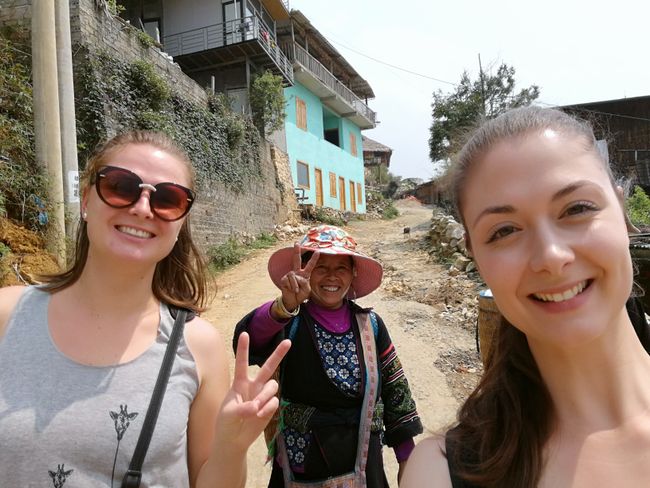
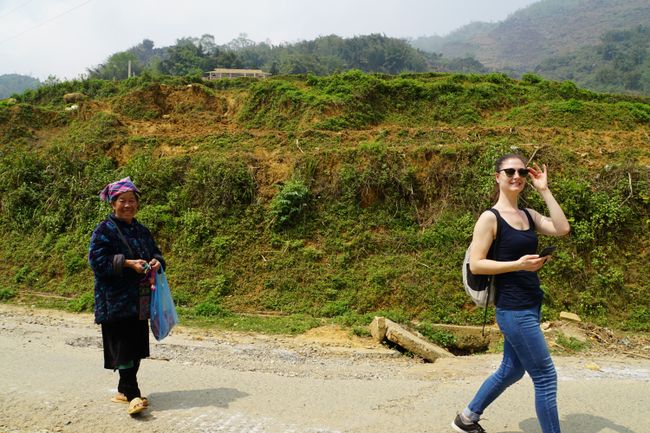
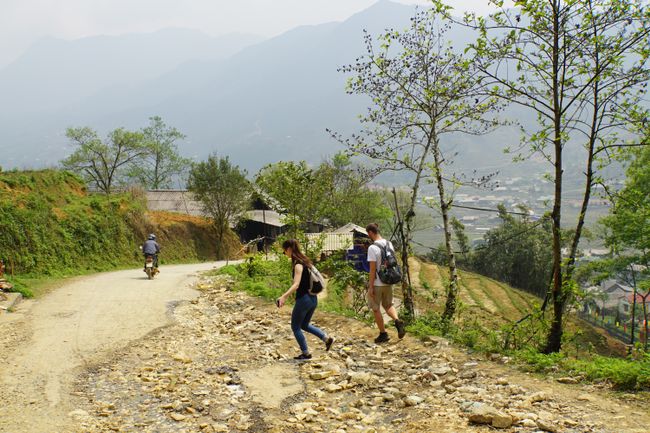
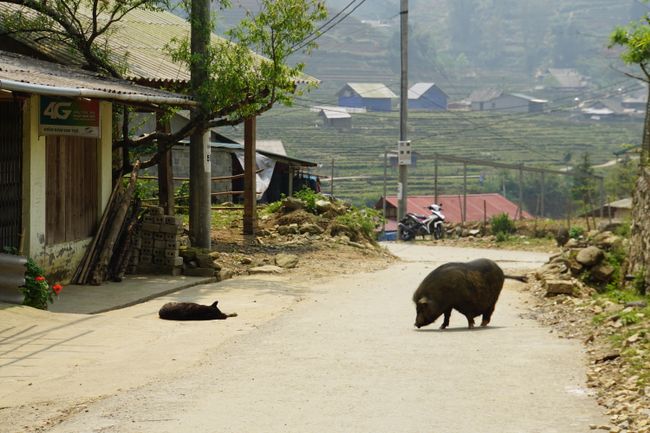
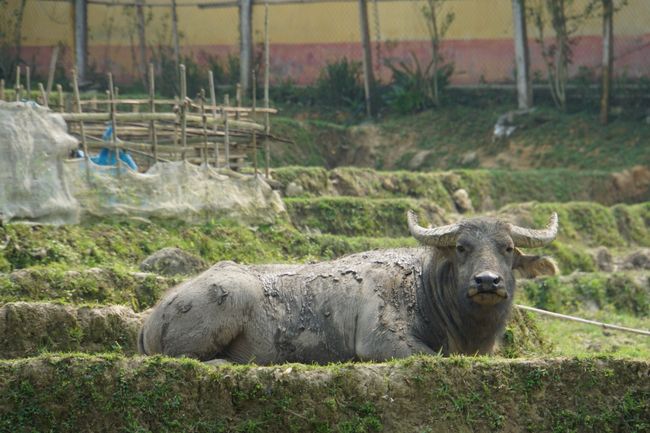
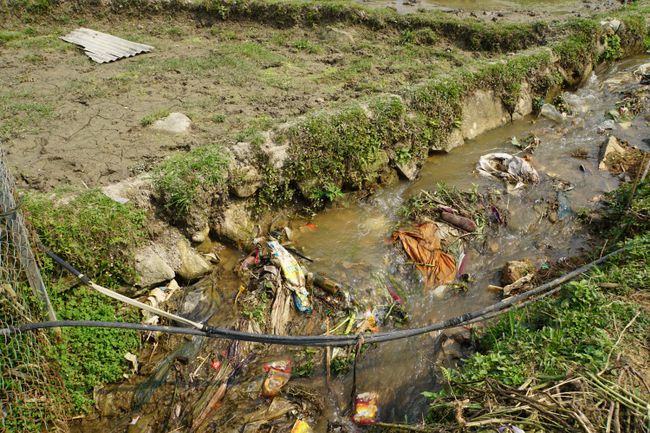
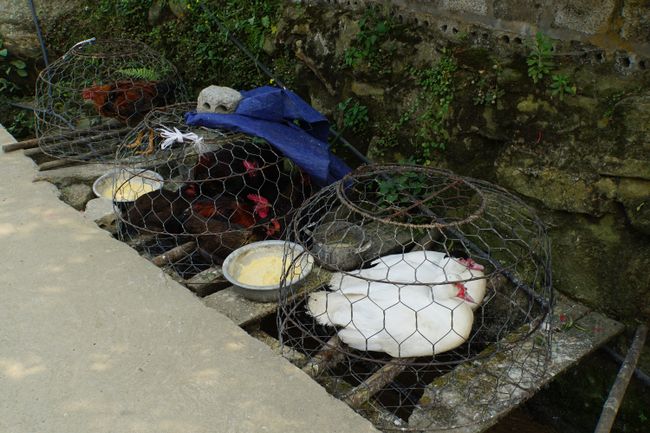
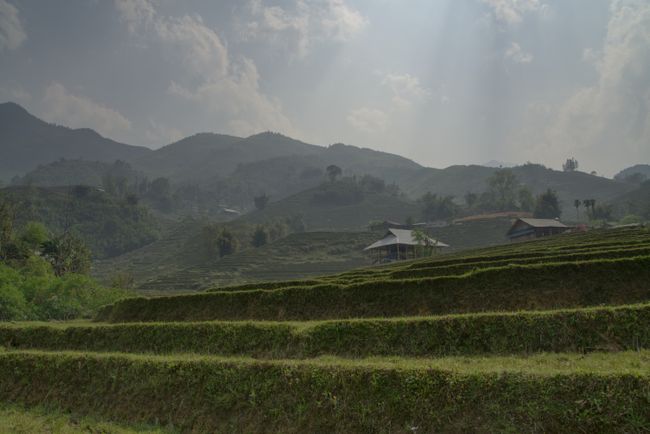
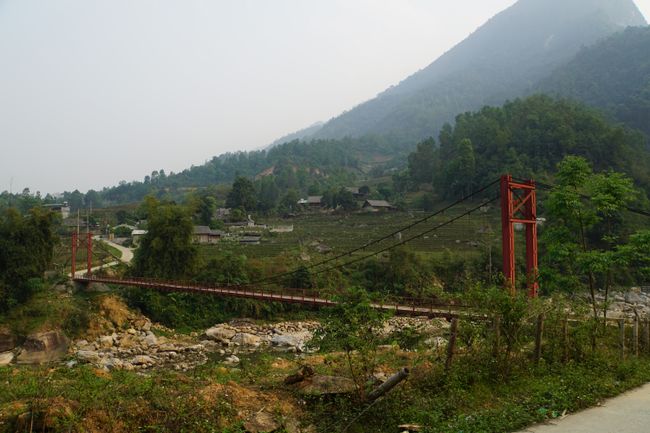
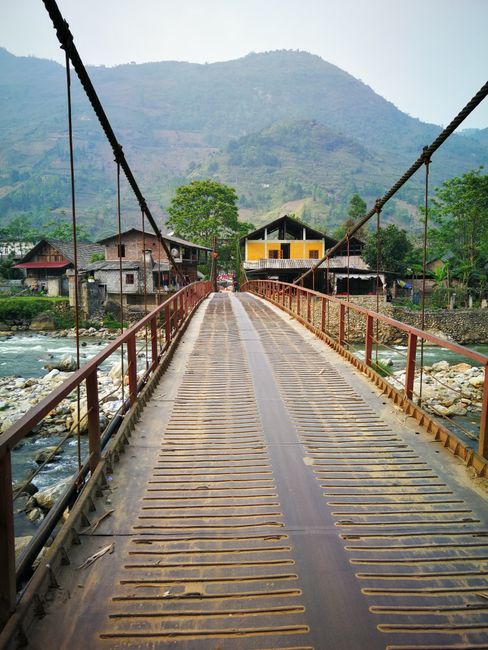
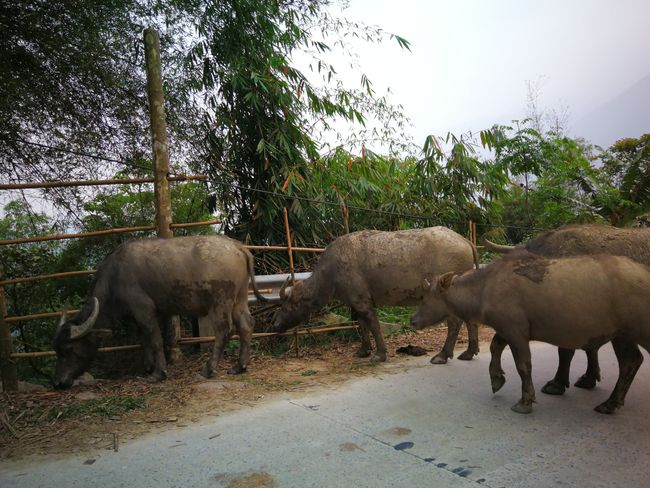
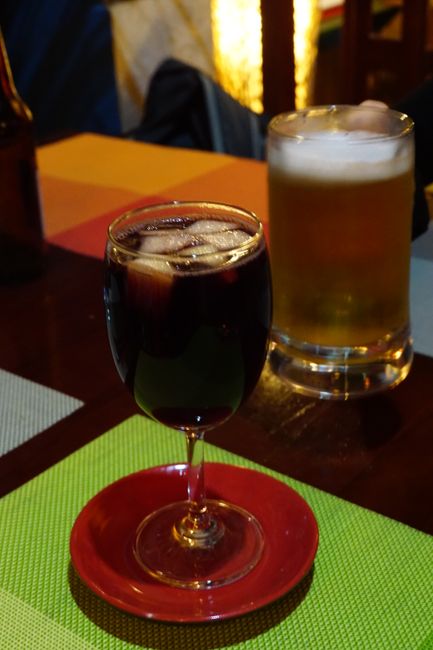
Willakuy qillqaman qillqakuy
After one last coffee in Vietnam's capital, we head to Hanoi train station by taxi. We take the night train to Lào Cai at 9:45 pm. From there, we continue a little further by minibus to Sa Pa. The city, with a population of around 38,000, is located in northern Vietnam at an altitude of 1,560m, about 376km north of Hanoi. From here, numerous hikes can be undertaken, and the area is known for its picturesque rolling hills and rice terraces. Additionally, Vietnam's highest mountain, Mount Fansipan, with a height of 3,173m, can be climbed. Sa Pa and the surrounding mountain villages, some of which are still very remote, are home to many ethnic minorities, such as the Hmong and the Red Dao. Tourism is gaining importance in this agricultural region, and anyone who thinks they have a hidden gem and will find pure rural idyll here is greatly mistaken. However, this stop in Vietnam should not be missed on a round trip.
For the three of us, it is the first overnight train journey. We have booked three beds in a four-person compartment. Our Vietnamese fellow traveler has already taken his bed and is a very quiet companion. The beds are quite hard, but sufficient for one night. After all, we all have enough space and can stretch our legs completely. The train sets off on time and slowly moves through the city center of Hanoi, winding through the streets and across intersections.
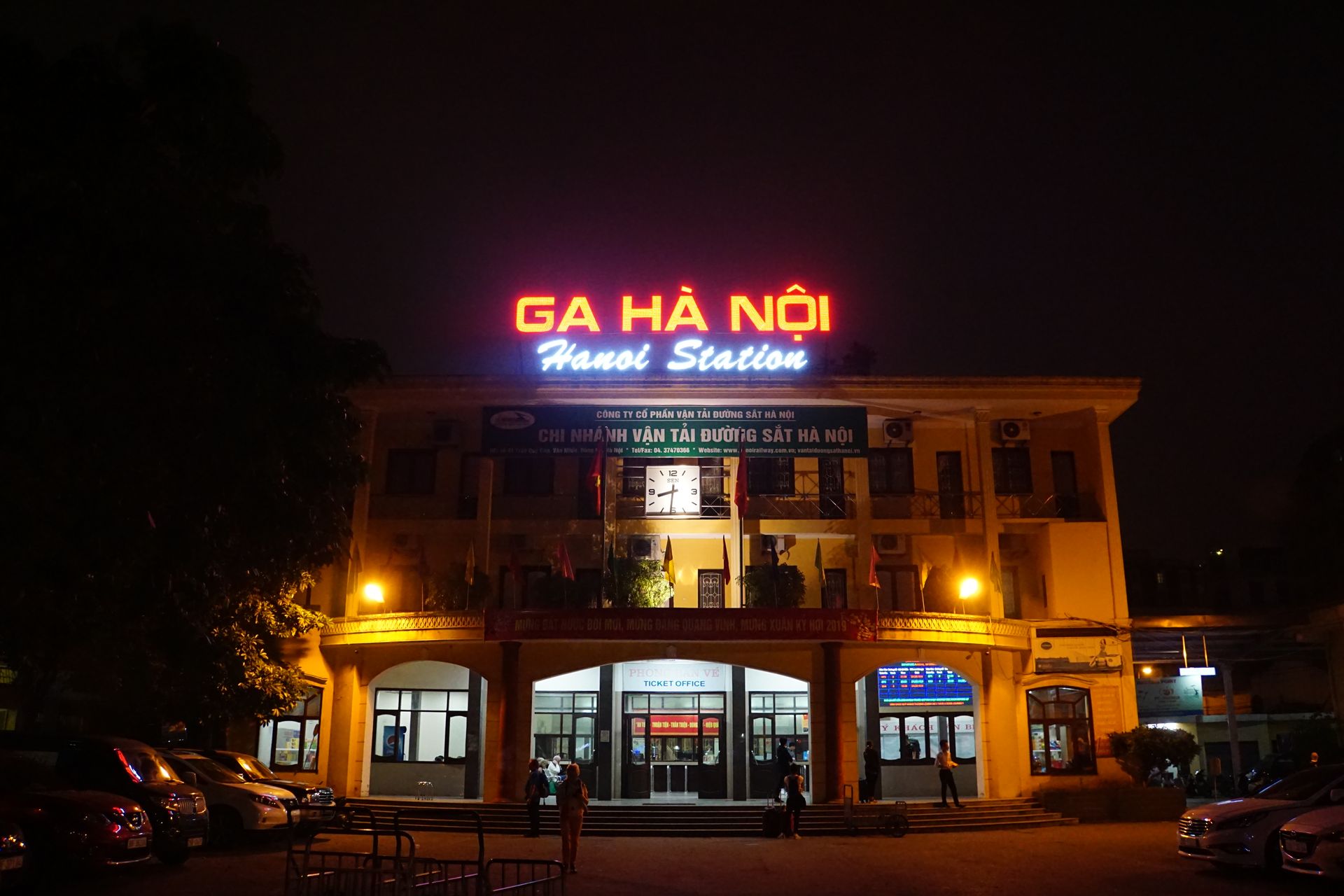
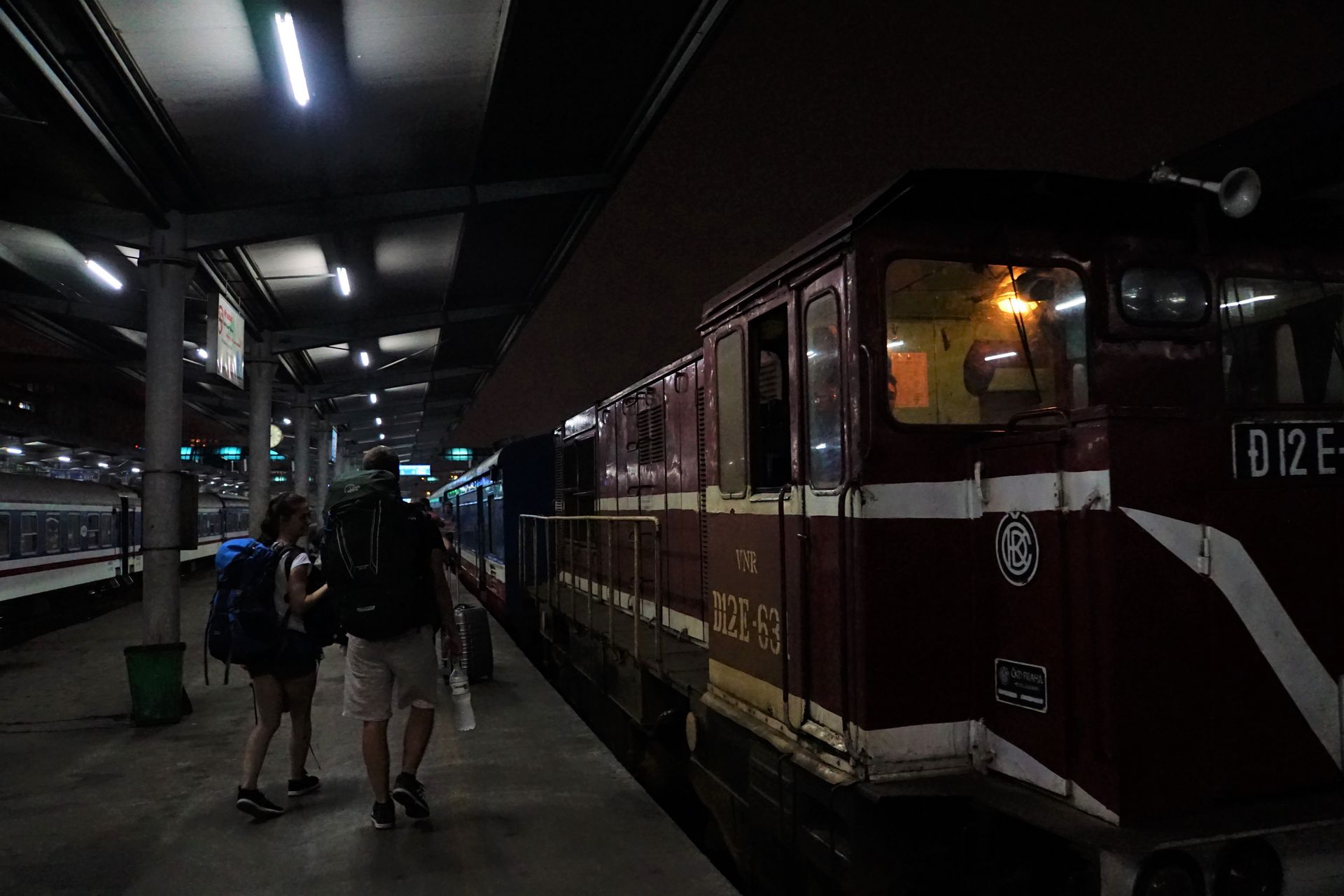
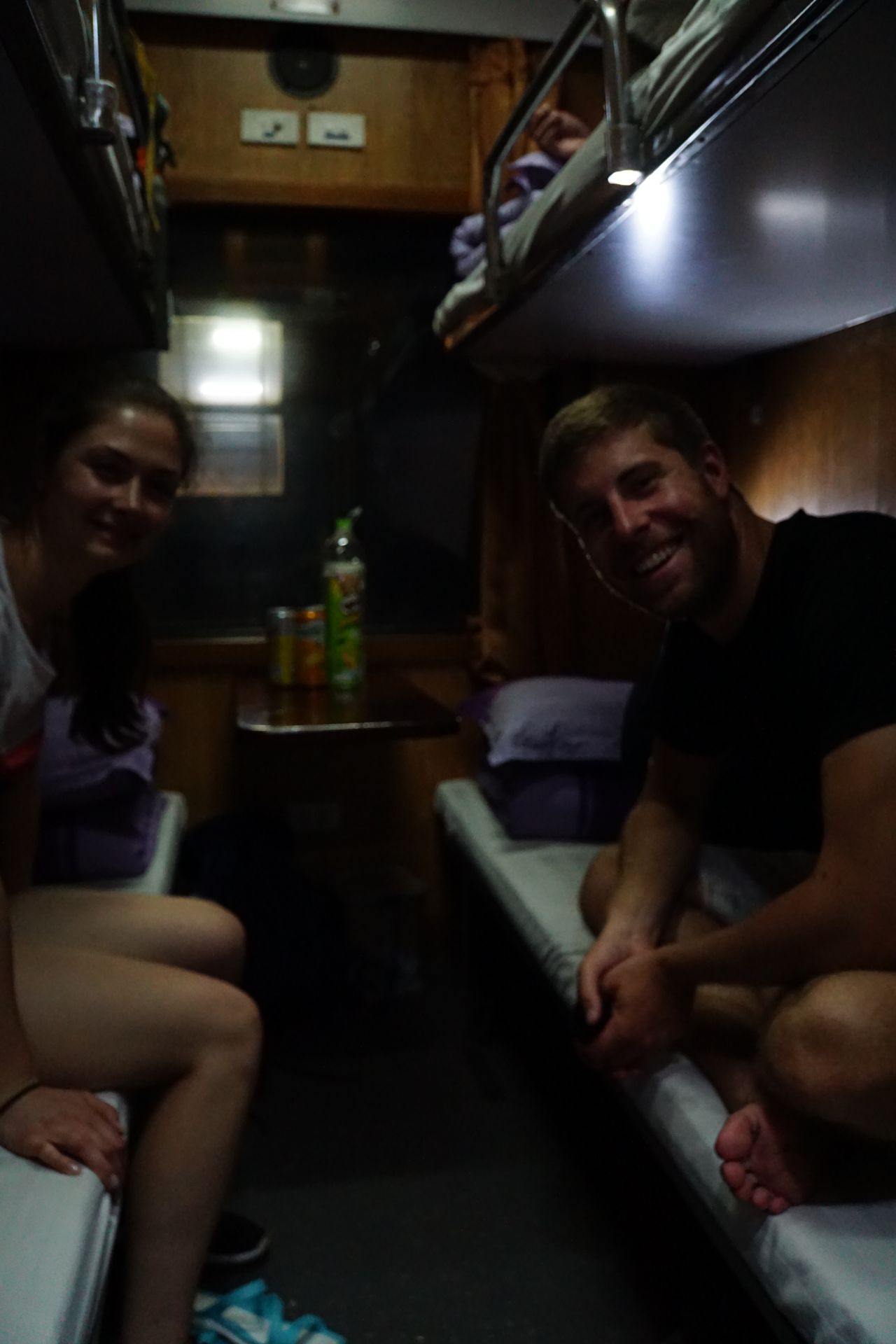
After crossing the Long Bien Bridge, the train gradually gains speed. As a result, the carriages start to sway quite nicely from left to right. We are rocked to sleep more or less gently. However, the sleep we get here is not as restful as in a real bed. But at least we get our coffee, which we ordered the night before, half an hour before arriving in Lao Cai. So we can at least fight our tiredness with good caffeine. When we arrive in Lào Cai, it is 6 am. We are intercepted directly at the platform and asked if we want to continue to Sa Pa and taken directly to a minibus. That was easy, and we feel transported back to Peru, where we were also intercepted in a similar way when we took the collectivos to the entrance of the Santa Cruz trek. A loud techno music is booming from an open fitness studio at the train station, and as we learn from our driver, the music runs 365 days a year around the clock! That will certainly keep us awake. After an hour-long and very winding drive with little legroom in the minibus, we are dropped off right in front of our hotel. Fortunately, we can check in early, lie down for a while, and catch up on much-needed sleep.
After about three hours, hunger drives us out of the hotel, and we have a pho for breakfast - the classic Vietnamese dish. Then we explore the area a bit and walk through the market, which is now only partially open due to the advanced time of the day. We decide to explore the rest of the day on our own, with the goal of seeing the famous rice terraces of Sa Pa. So we just start walking and soon reach the square where the Chợ tình Market, also known as the Love or Marriage Market, used to take place every Saturday evening. In the surroundings of Sa Pa, there are many mountain villages that are separated by quite large distances. When the area was christianized by French missionaries, people from the surrounding villages were 'encouraged' to attend the Sunday mass. Since most had to walk a long distance, many of the more or less willing believers arrived the day before and used the time for trading goods and, of course, to meet singles or those who would like to be. It’s like a huge offline dating app. Today, many traders gather there in the evening, but the old custom still exists. The ladies present something, introduce themselves and their charms, and answer questions from the interested men, while the men watch. Unfortunately, we are present on the wrong day, but even so, there is a lot going on here in the evening.
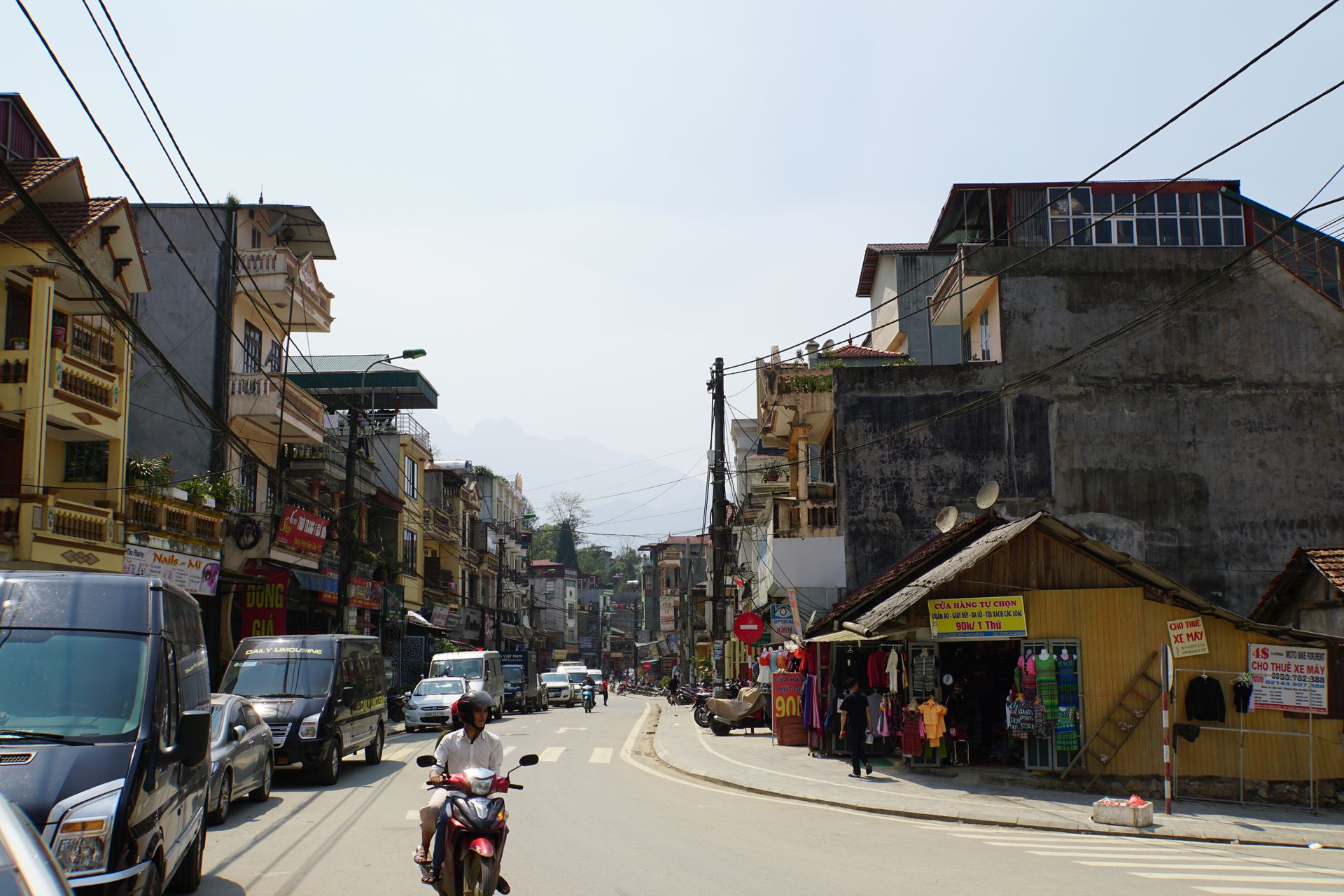
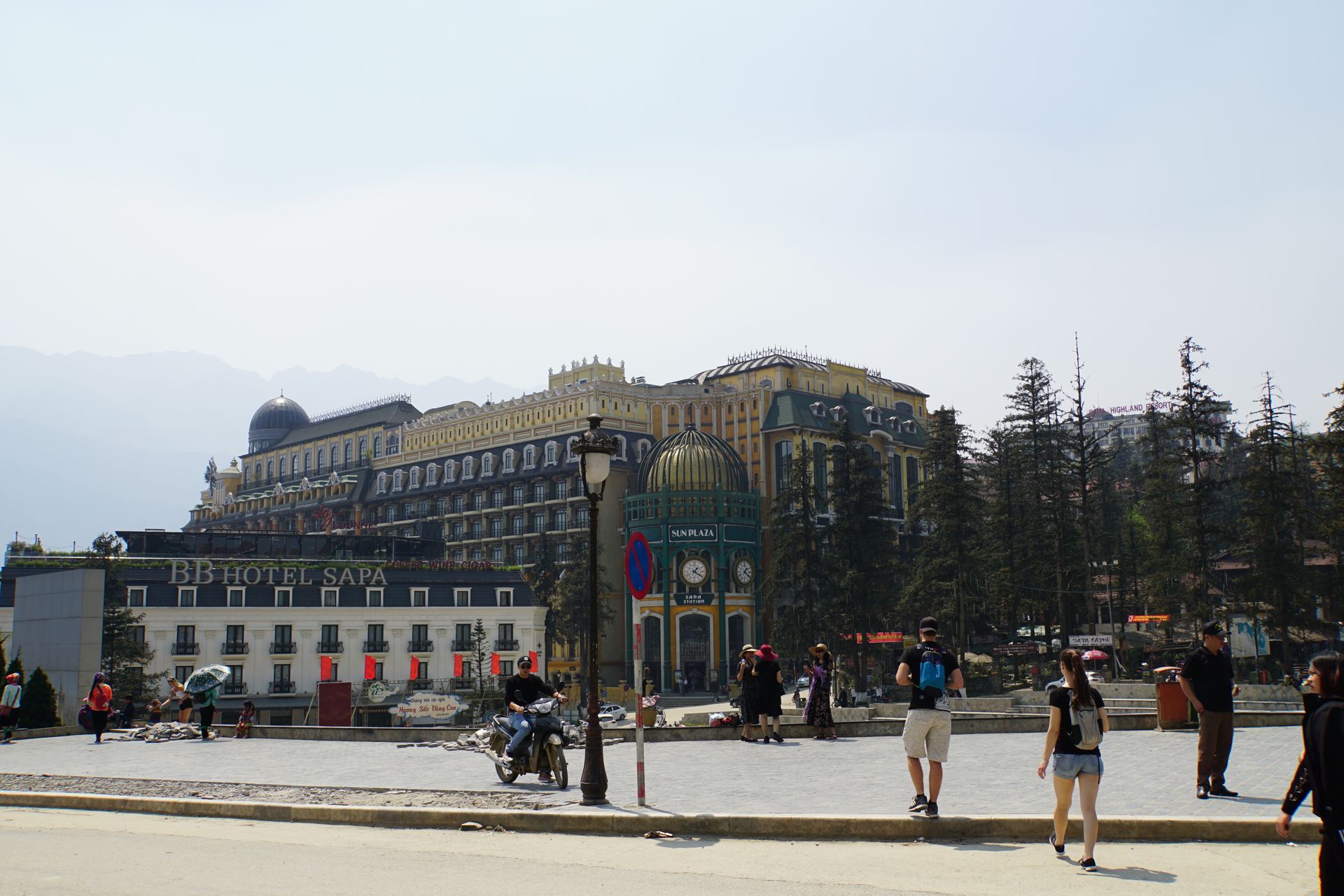
We now walk downhill and slowly leave the somewhat hectic Sa Pa. After a while, we stand in front of the entrance to the village of Cat Cat. This is a village of the Hmong ethnic group. Perhaps more of a Disneyland for tourists and Instagrammers, as we get the impression that the village was built or is being built to be cute and original only for tourists, as we still see some construction sites. Although we suspect that there is more show than substance, we really like Cat Cat, and it gives us an impression of how the Hmong used to live. Traditional dances are performed in a small theater and fabrics are hand-woven, processed, dyed, and turned into clothing right in front of us.
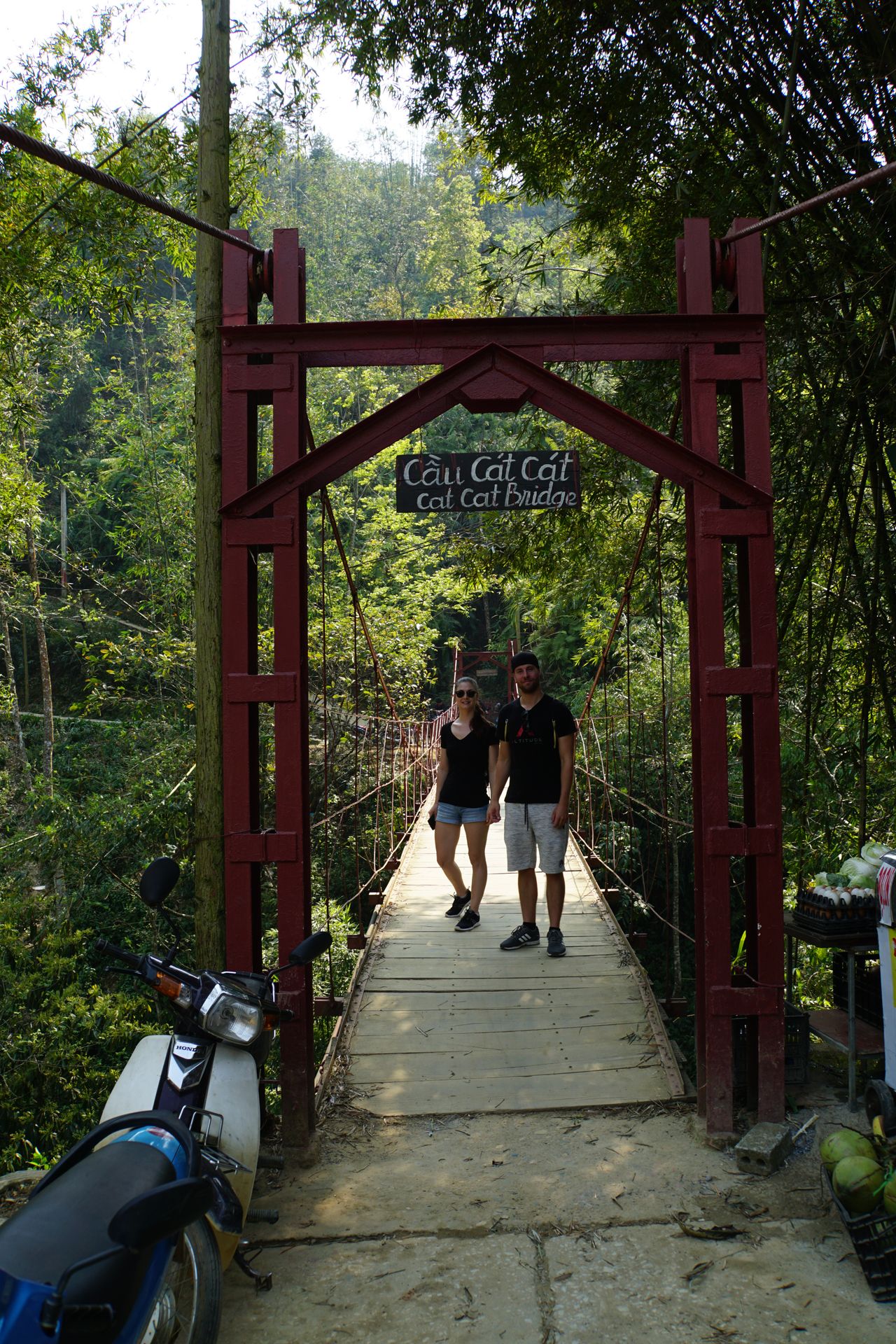
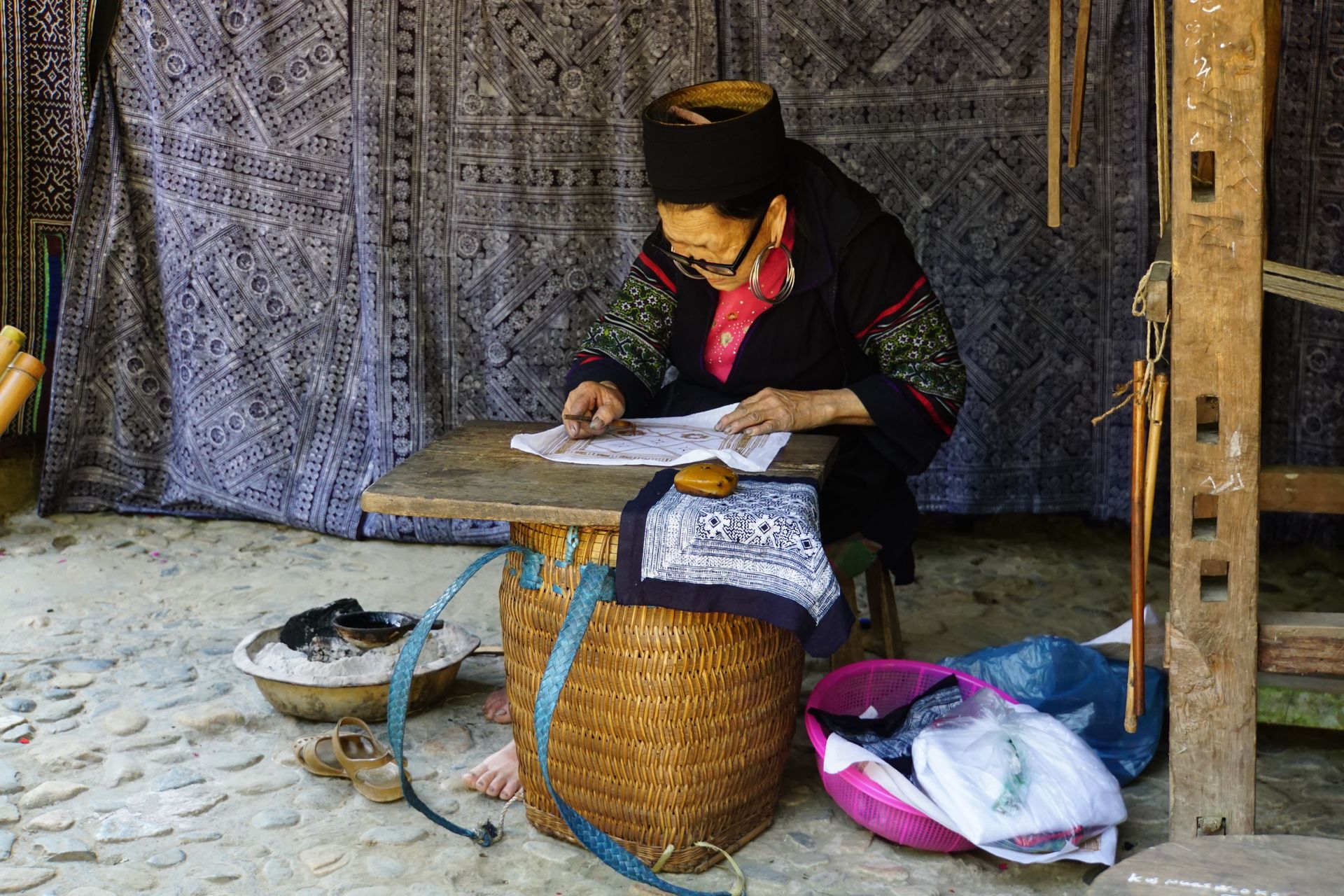
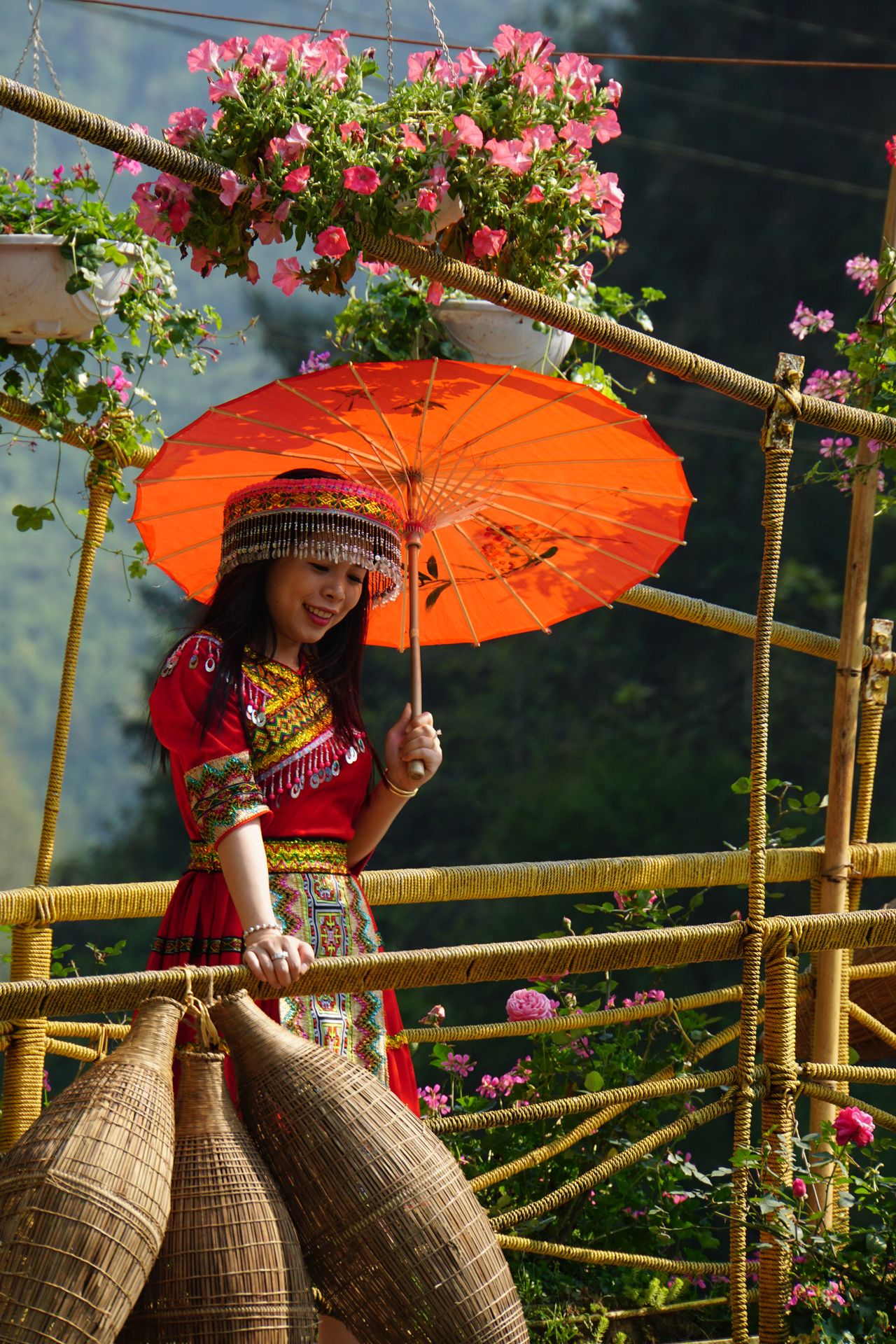
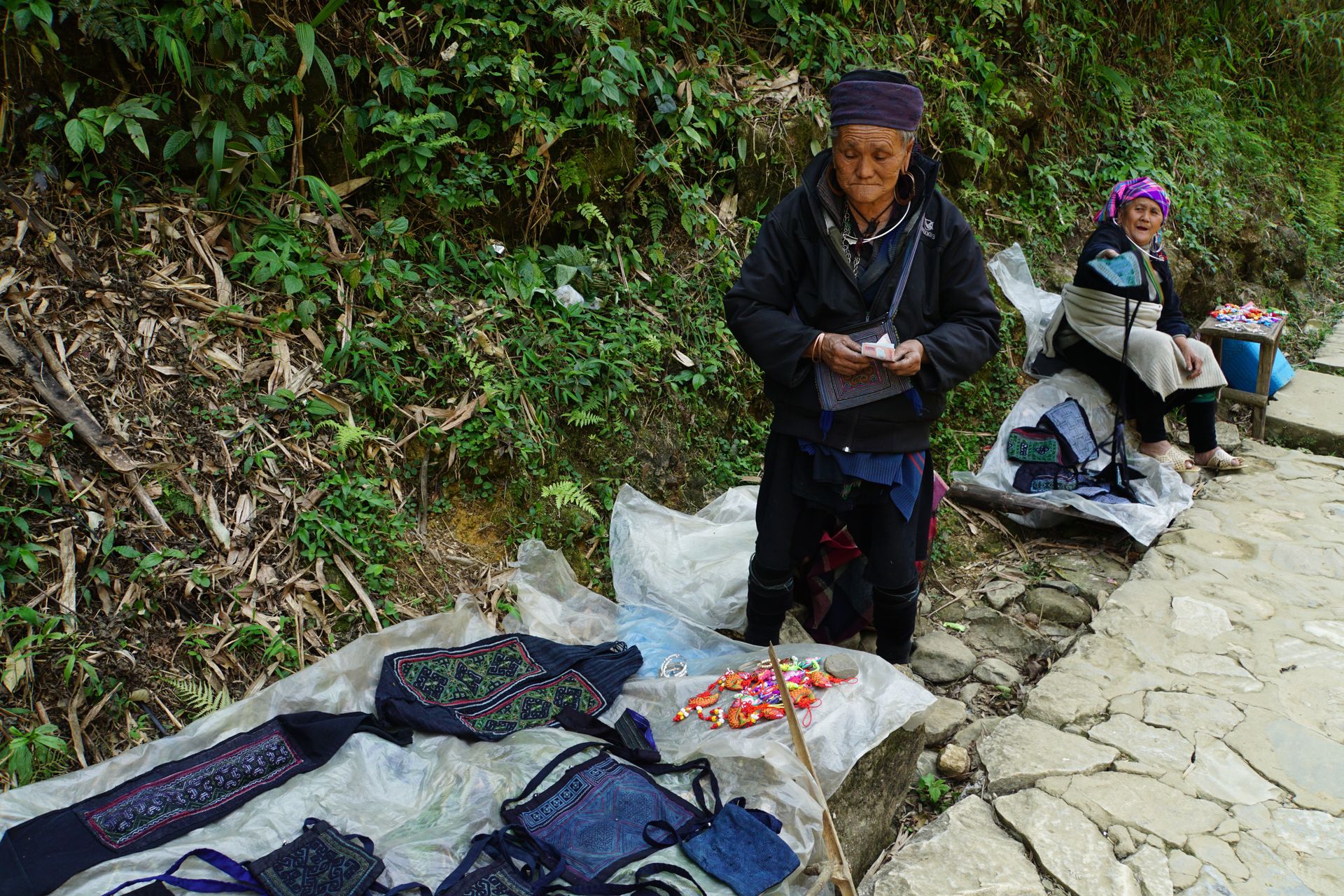
On the way back to Sa Pa, we want to stop at a viewpoint where we can see the rice terraces. Since we don't want to walk uphill the entire way, we gladly accept the services of three scooter drivers who are waiting at the end of Cat Cat to take well-paying tourists back to the city. We show the boys where we want to go, and in broken English, we are told, 'No problem!'. However, when we arrive at the crucial intersection (turning left will take us back to the city, turning right leads to the viewpoint), Laura's scooter driver misses the fact that Caro and Markus turned right and continues happily up the hill towards the city. About 500m past the intersection, Caro and Markus stop because the scooter Markus is riding has a flat rear tire. However, we first want to know where Laura is now and wait to see if she might come back or if one of the scooter drivers will call their colleague. But they don't lift a finger. It's also annoying that Laura doesn't have any cash or her phone with her. We decide to go back to the hotel first and then divide ourselves: one of us stays at the hotel in case Laura returns, and the other one goes out and checks if she was dropped off somewhere else by the scooter driver. So Markus gets on the scooter with Caro and the driver. This way, the two of them experience an authentic Asian feeling during their very first scooter ride: three people on one scooter!
Meanwhile, Laura sits on the back of the scooter and has no idea where her driver wants to go. He doesn't seem to understand the explanations of where to stop. Apart from 'Take a ride,' 'No problem,' and counting up to 100, he doesn't seem to speak any English. How wonderful! The poor guy is completely overwhelmed but also refuses to turn back. He also can't do anything with the name of the hotel and continues to wander aimlessly through Sa Pa, hoping to accidentally drive past the hotel at some point. After about five minutes, he realizes that this probably won't work and stops to find a Vietnamese person who speaks English and can bring some clarity to the situation. Finally, a good Samaritan with language skills is found. Laura explains to him that she doesn't have any cash or her phone with her and needs to get to the hotel, but the driver doesn't know the hotel. The friendly Vietnamese who speaks English lends Laura his phone so she can find out the address of the hotel and show it to the driver. This way, she also arrives at the hotel safe and sound shortly after Caro and Markus. At least we had an extensive city tour. That was enough excitement for one day, so we go for a delicious Vietnamese coffee. Markus dares to try another Vietnamese specialty: Iced Coconut Coffee. It tastes absolutely delicious. The combination of coconut and coffee is a match made in heaven!
For the next day, we plan to take a little hike through the valley with rice terraces rising on both sides. We try it on our own first, thinking it can't be that difficult! Since there are no signs and hardly any sidewalks, just roads, we don't get very far. After just half an hour, we come across a barrier and are asked to pay if we want to continue. But since we're not even sure if we're on the right path, we prefer to turn around and go to the tourist information center to ask for the right way. The friendly staff member tells us that the valley is best explored with a guided tour. However, it is already too late for that. A second, slightly cheaper option is to hire a private driver who can take us from village to village and stop wherever we want. That already sounds promising and fits perfectly into our schedule. The staff member orders a private driver for us and coordinates with him to drop us off in one village and pick us up in the next village. This way, we can still enjoy a little hike. We then set off in a fancy limousine. After just five minutes, we are back at the barrier, so we were on the right track after all. This time we pay for access to the valley and go downhill on a very bumpy, poorly maintained road. At least construction is underway here, but it doesn't improve the comfort of the road surface - quite the opposite. As we continue driving for a while until we reach the first village, it was the right decision not to do this tour on foot. We would have taken quite a long time to cover this distance on foot, would have had to walk along the busy road, and would have been covered in dust from passing cars and scooters. After another 15 minutes of driving, our driver drops us off at the agreed-upon location. We are supposed to walk through the rice terraces and villages to the meeting point from here. We can't miss the way. Right next to the car, we are surrounded by six to eight women who want to sell us all sorts of kitschy souvenirs. We decline politely, but the ladies are persistent and not so easily shaken off. They 'follow' us for about 10 minutes downhill and constantly try to engage us in conversations in the hopes of still closing a deal.
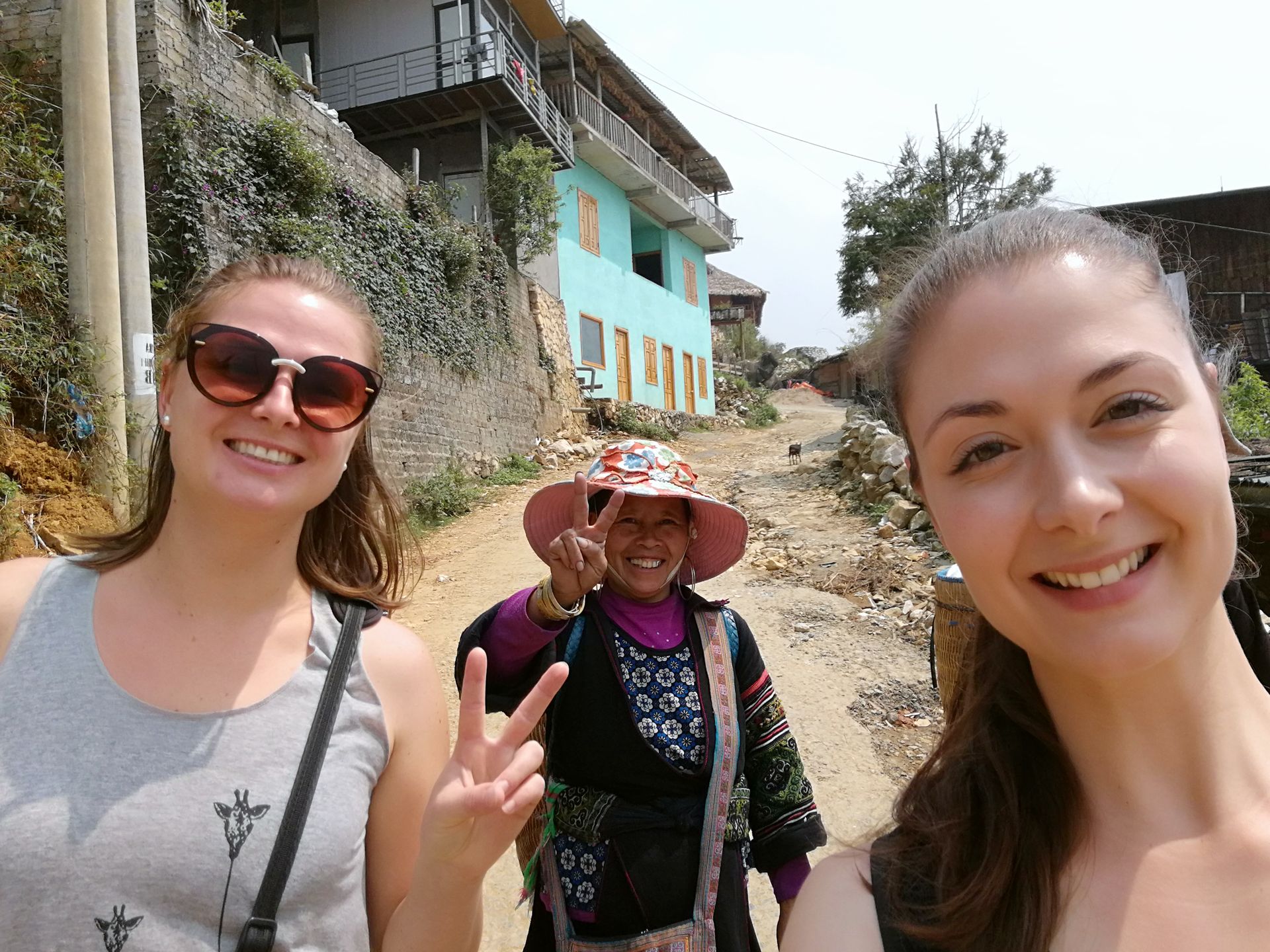
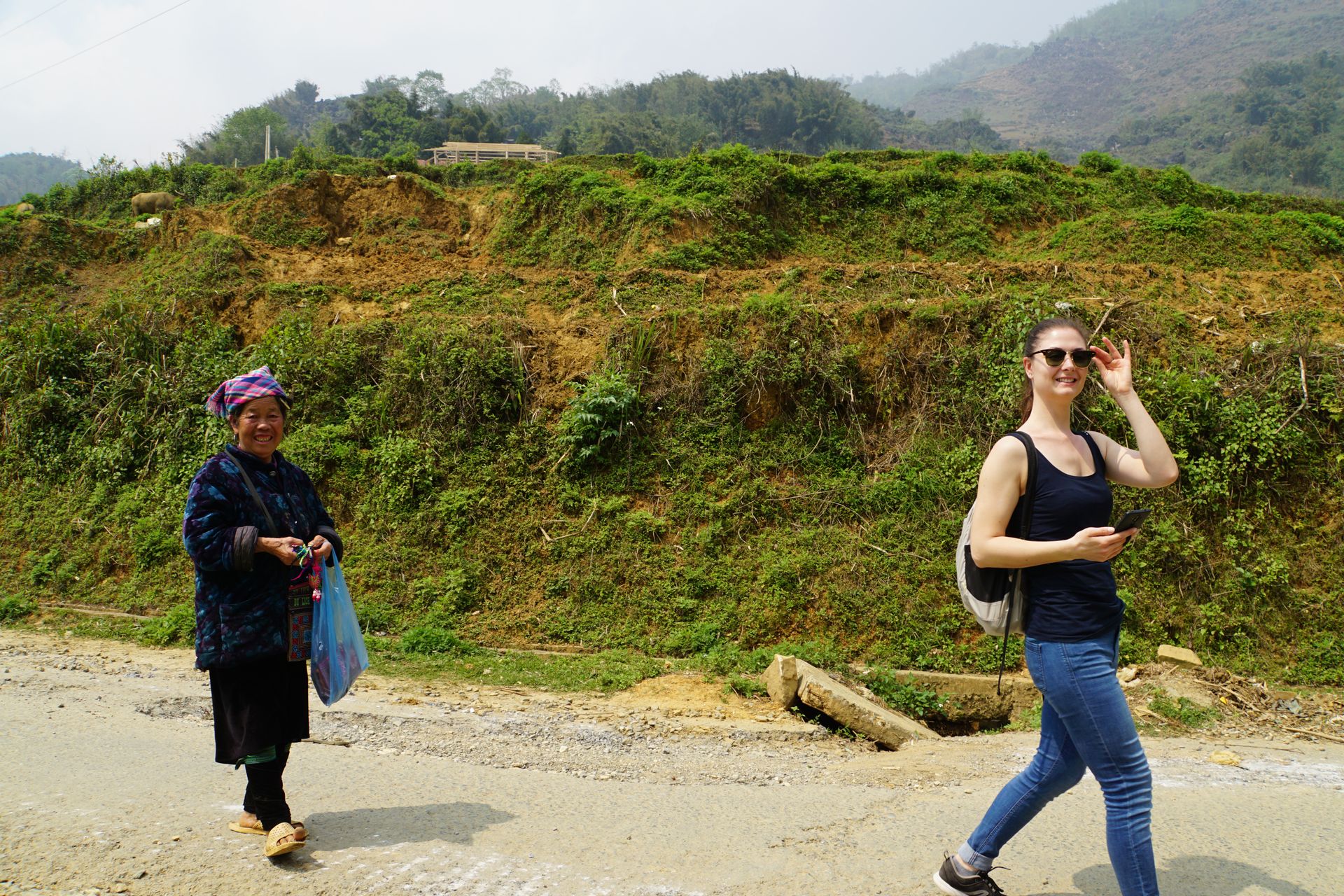
Eventually, Laura gives in and buys a small pendant from one of the women. Instead of being happy with the completion of the transaction, she tries again and asks the three of us if we want to buy something. No, we don't, thank you very much.
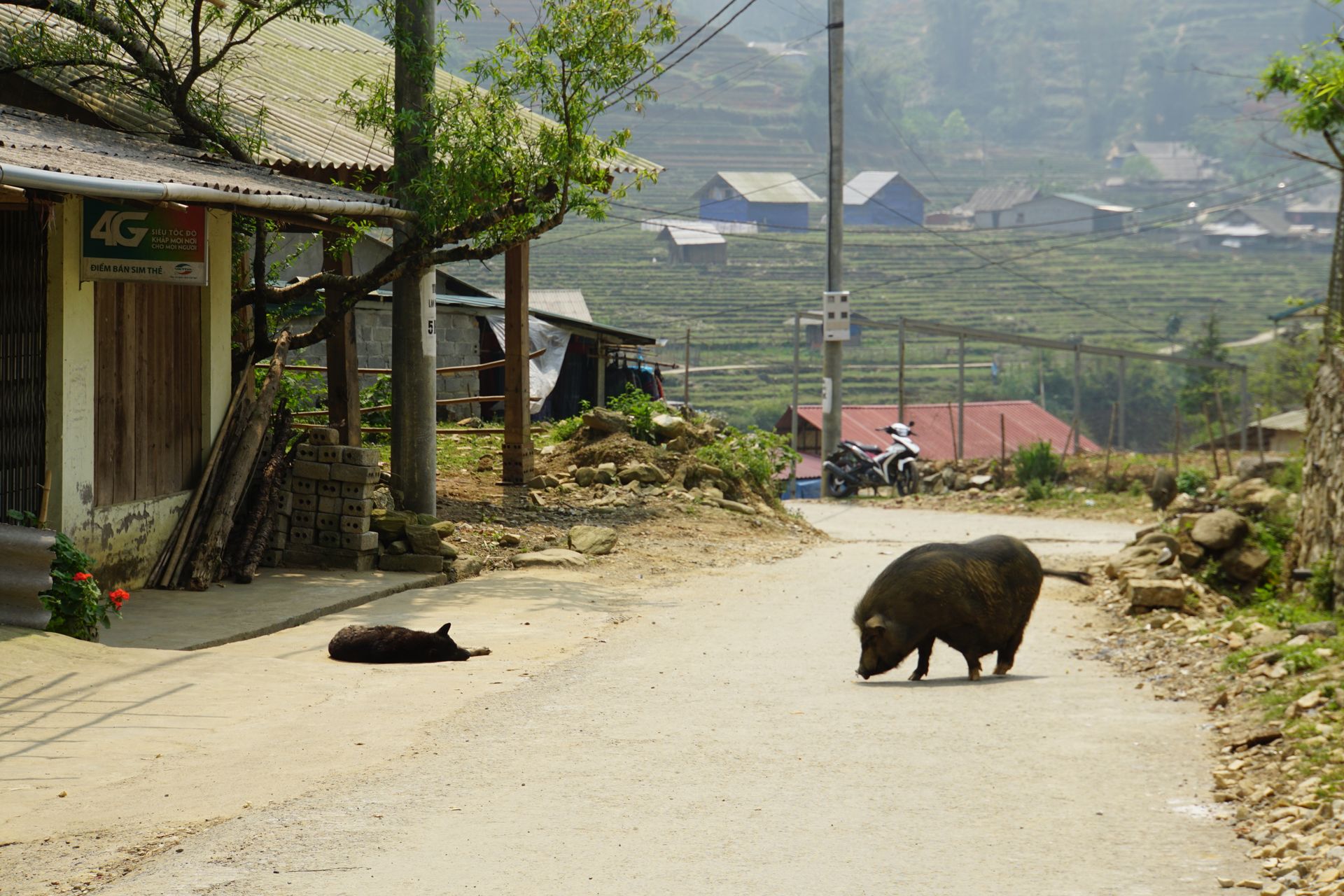
When we arrive in the village, we treat ourselves to a small lunch at one of the many restaurants and then continue walking through the rice terraces. Many of the houses have small gardens, and everything is in full bloom. Here and there, a water buffalo lies lazily in the water of the rice field, enjoying the sun on its fur, while some chickens and dogs roam freely. It could be so idyllic. Unfortunately, even here, plastic doesn't show mercy, and we see a lot of trash in a small stream, along the roadside, and occasionally in the fields. This somewhat tarnishes the otherwise beautiful overall impression.
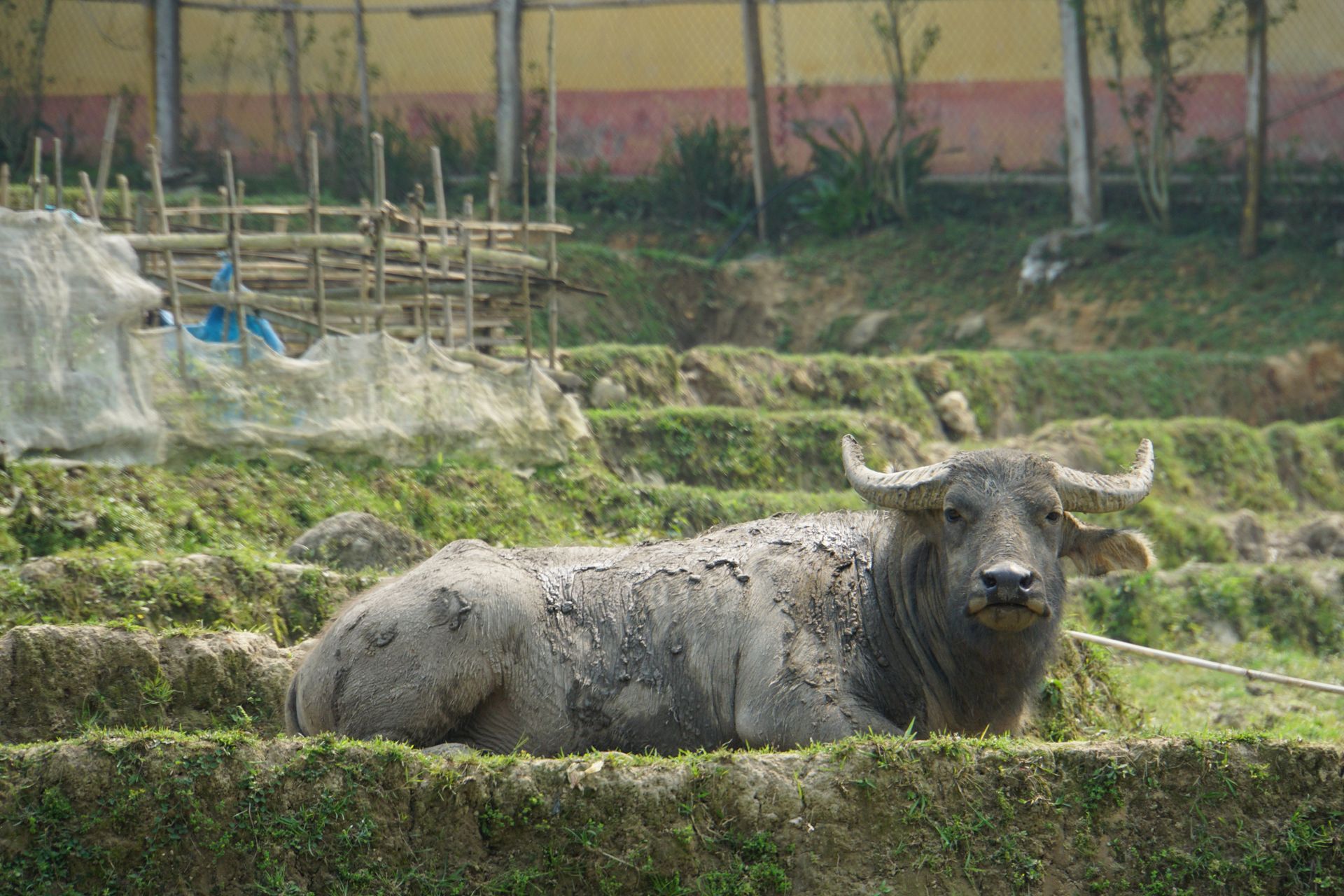
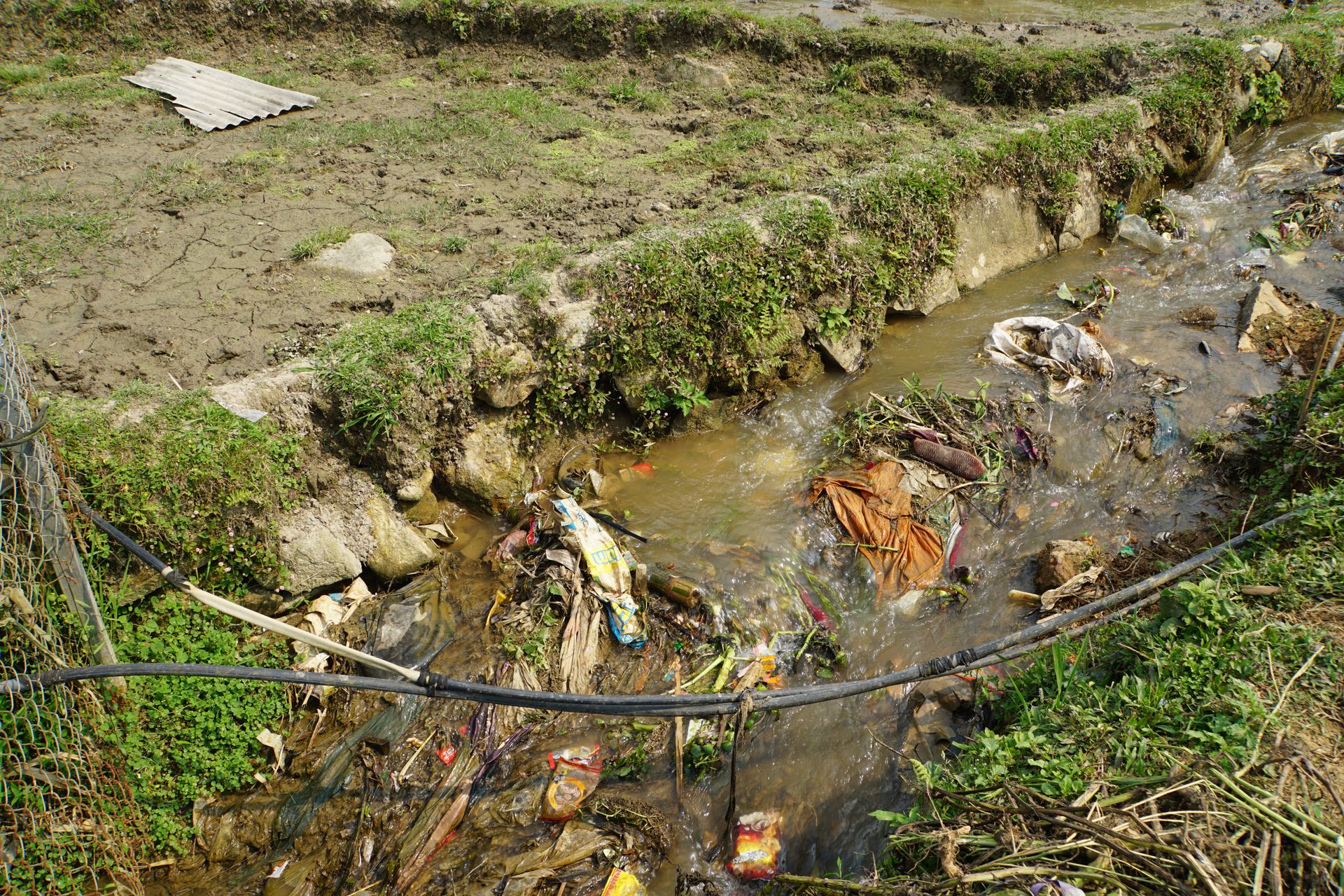
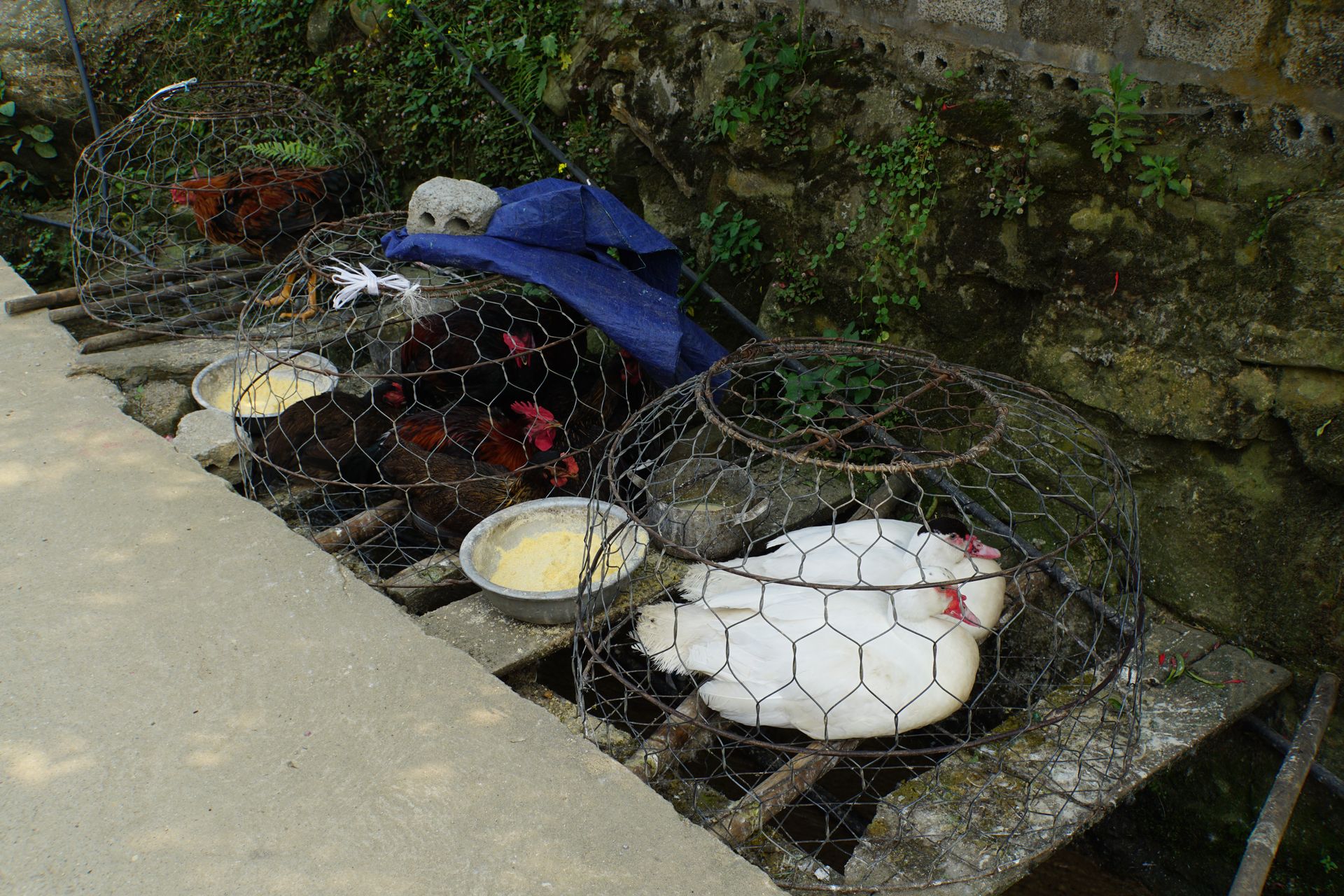
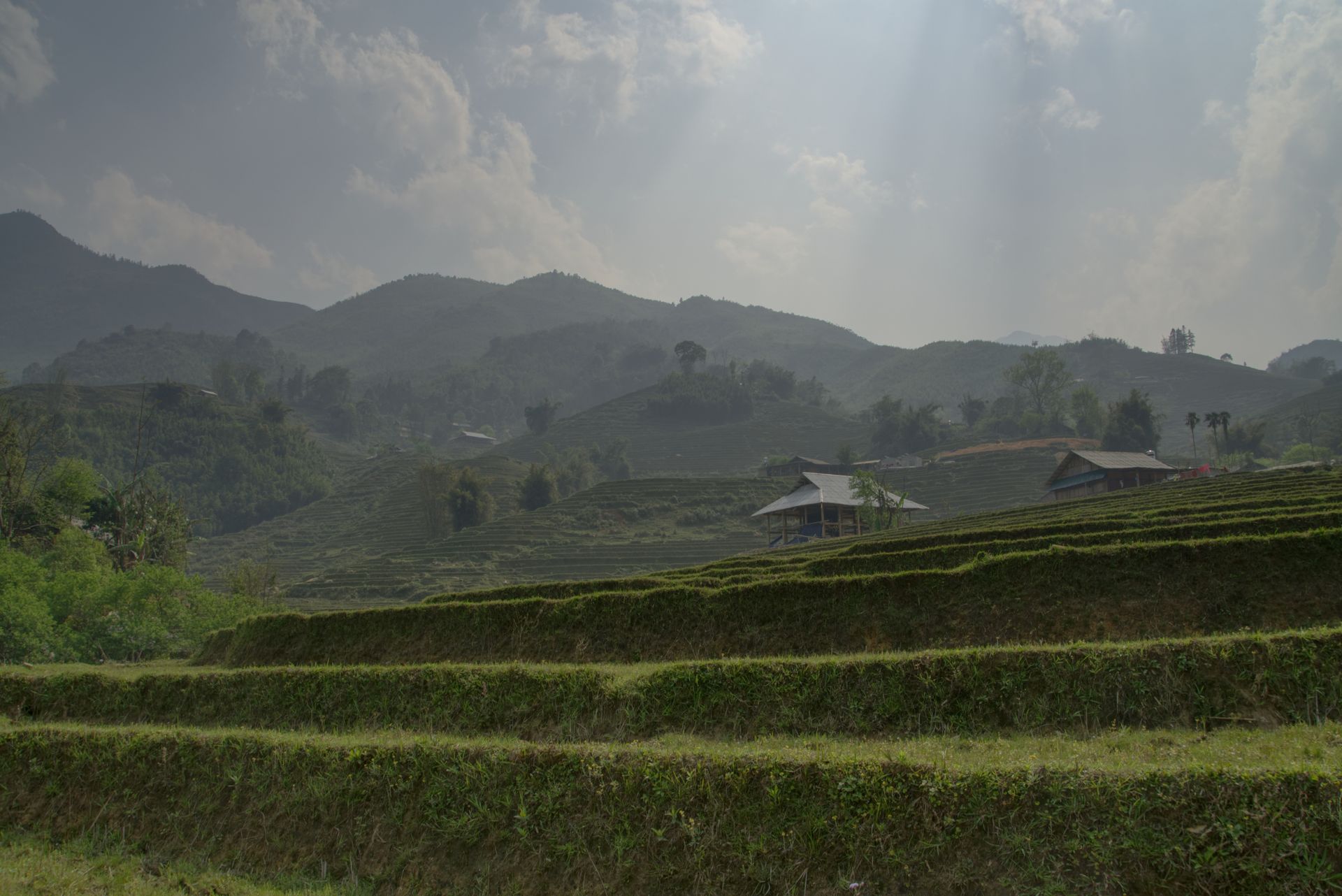
When we arrive at the next village, fortunately, we quickly find our driver again. We continue driving, passing huts, terraces, buffalos, and hikers. When we arrive at the last village, we have some time to walk around a bit. This village seems much tidier and cleaner than the two we have seen so far. However, there are also fewer tourists. After a refreshing drink, we head back to Sa Pa. The last hurdle is a herd of water buffalos standing in the middle of the road, but our driver skillfully drives them away with the car. Displacement is the magic word here.
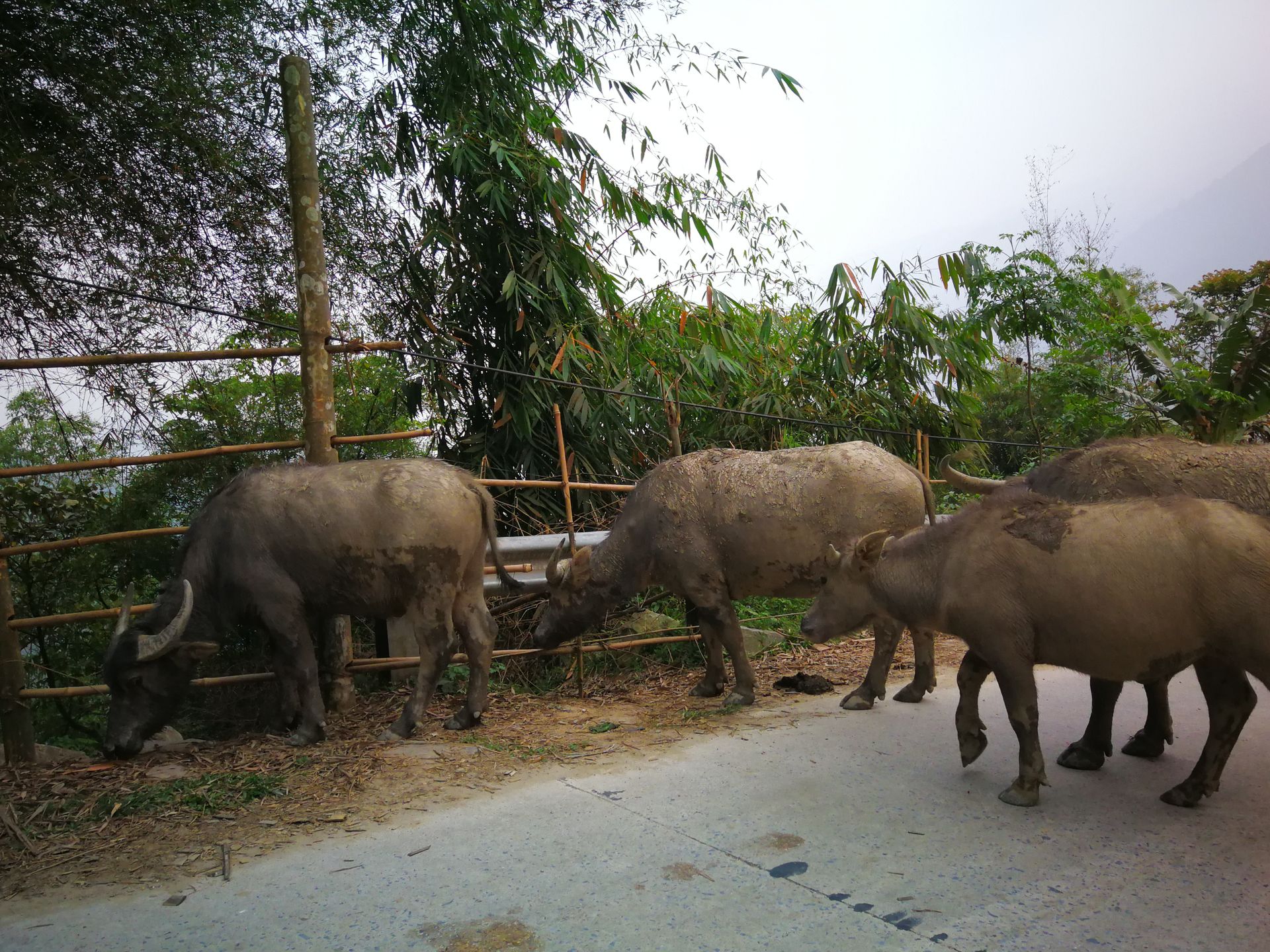
Arriving in Sa Pa, we go for dinner and are quite surprised that we find mulled wine on the menu here in northern Vietnam! We order it immediately and give it a try. It actually comes quite close to our German mulled wine!
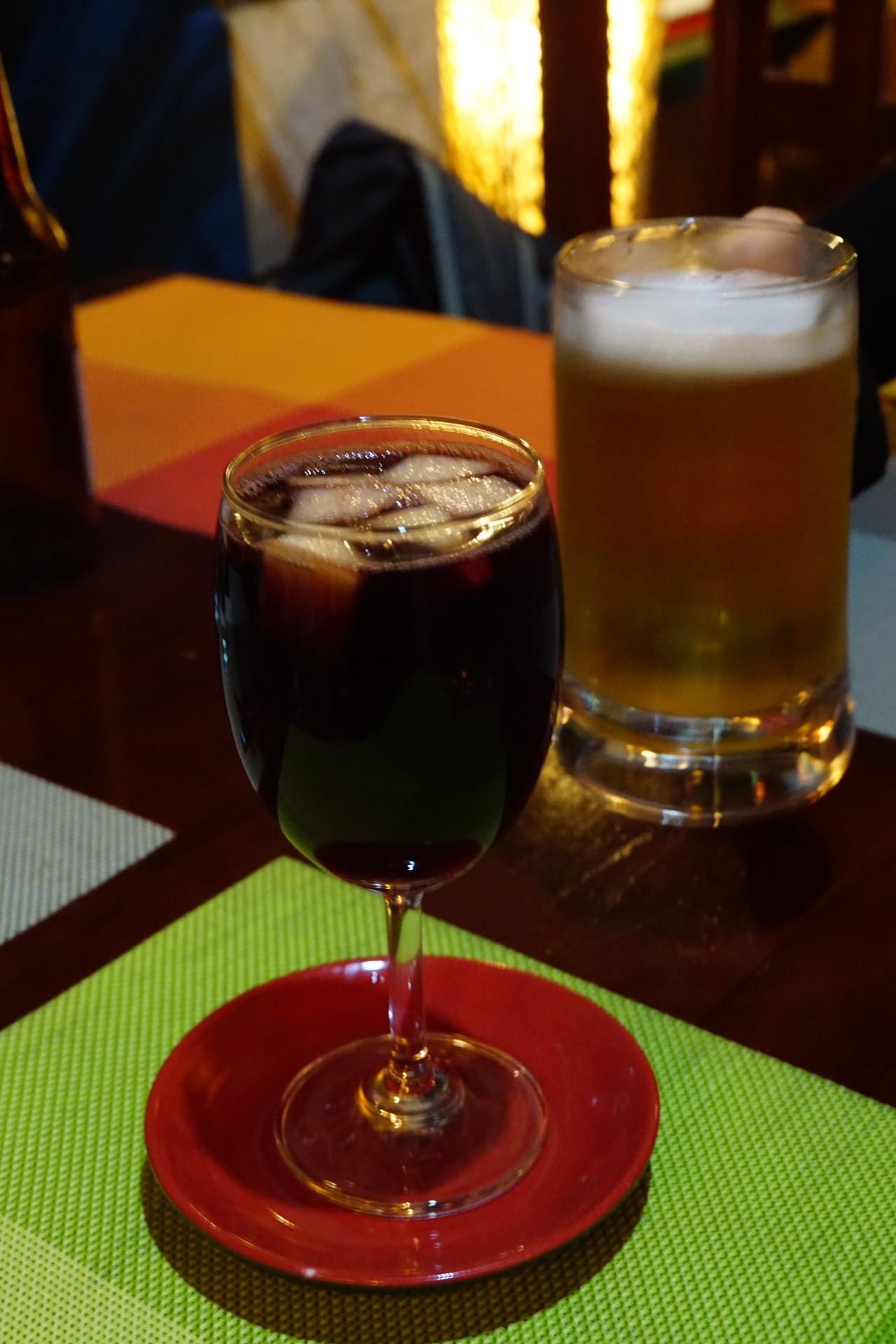
After dinner, we return to the hotel. Tomorrow we have to get up early again and take the bus to Hoi An. We have a pleasant 28 hours of travel ahead of us - with a three-hour layover in Hanoi, which we will use for eating and drinking coffee.
Willakuy qillqaman qillqakuy
Kutichiy
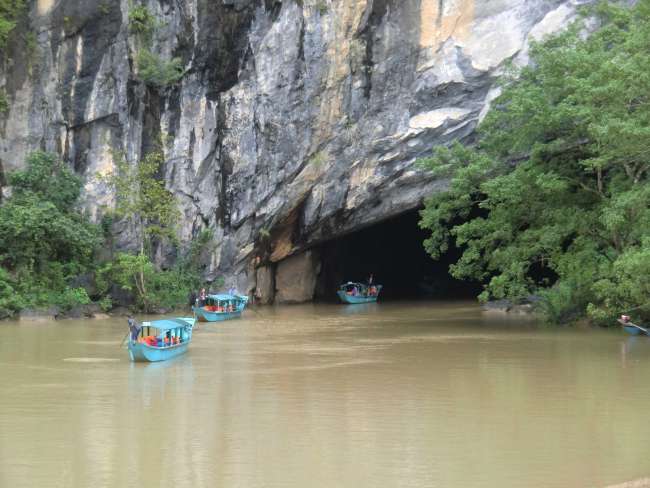
Viaje willakuy Vietnam suyu
